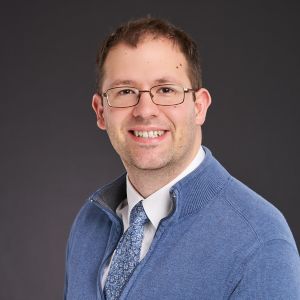St. Jude Family of Websites
Explore our cutting edge research, world-class patient care, career opportunities and more.
St. Jude Children's Research Hospital Home

- Fundraising
St. Jude Family of Websites
Explore our cutting edge research, world-class patient care, career opportunities and more.
St. Jude Children's Research Hospital Home

- Fundraising
Protecting the mental health of Ukrainian families experiencing childhood cancer
SAFER Conversations is an outreach webinar designed to discuss the common psychosocial challenges displaced Ukrainian families experience and how to address them.

The humanitarian effort called SAFER Ukraine has helped hundreds of Ukrainian pediatric cancer patient access treatment in Europe and beyond.
Imagine: A doctor asks you to sit down. The physician explains that one of your worst fears has come true – your child has cancer. Your life changes from this moment forward. You plan around your child’s appointments and treatments; you try to learn all you can about supporting a cancer patient at home. Then, a neighboring country starts a war against your country, sometimes targeting medical institutions.
That is what happened for thousands of parents of pediatric cancer patients across Ukraine as Russia invaded in February 2022. Many families have fled Ukraine in the hope of finding care for their children elsewhere, an experience that often involved a wide range of psychological trauma.
SAFER Ukraine & SAFER Conversations
Ukrainian parents are not alone. The SAFER Ukraine (Supporting Action for Emergency Responses in Ukraine) effort is a collaboration of multiple countries, non-governmental organizations, charities, hospitals and patient advocacy organizations created to help Ukrainian pediatric cancer patients and their families access safe care. The effort is led by St. Jude Global in association with regional partners.
SAFER Conversations is an outreach webinar hosted by St. Jude Global and International Society of Paediatric Oncology. The first webinar featured a panel of professionals who have worked with evacuated patients and their families along the various steps of their journey toward continued care in Europe and North America. The panelists discussed common psychosocial challenges the evacuees have experienced and how to address them. The goal is to help health care professionals worldwide stay connected, share learnings and provide professional support to peers as they work with other Ukrainian families.
“These new conversations are about how we, as the global community, can come together to help all these children and their families,” said Carlos Rodriguez-Galindo, MD, St. Jude Global director, when introducing the panel. “I hope that we'll go deep into discussions about what is possible, what we need to do, and what lessons we are learning for future crises, as well.”
Understanding where Ukrainian families are emotionally
Erica Sirrine, PhD, LCSW, Social Work director at St. Jude, is a major point of contact for Ukrainian families at the hospital. She interacts regularly with each family, to the point where she is often greeted by hugs, smiles and questions. In general, the families are glad to be receiving cancer care, but she said they are far from home, both physically and culturally. Parents and other caregivers are starting to show signs of fatigue.
“One thing that we're noticing is a lot of our caregivers, now that some of those initial crisis responses are dissipating, they're starting to feel the stress in their bodies,” Sirrine said. “As I was providing psychoeducation, I said to one of the families, ‘In the United States sometimes people say they feel like they're walking through a fog in a time of crisis.’ And one of our Ukrainian families, as soon as the translator gave the information, both the translator and family smiled and they said, ‘We have the exact same expression, we often say that in our family.’”
Finding cultural similarities can help providers give better care to these families, she said. Ultimately, the need is to intentionally identify and deploy strategies that help families transition from fear to hope. The first step is understanding and empathizing with their situation. To empathize, one must know the journey these families have been through.
Fish out of water
Currently, many families are routed from the Ukrainian city of Lviv to Unicorn Marian Wilemski Clinic in Poland, often referred to as Unicorn. There, SAFER Ukraine staff determine patient needs. Unstable patients are immediately sent to hospitals in Poland. Stable patients and their families travel to treatment centers in Europe and North America.
Unicorn staff work hard to make sure the families know they are safe and provide information they need.
“My main task at Unicorn is to admit our Ukrainian families, calm them down, give them answers about what's going on, and try to change their focus from fear to hope,” said Inna Alabnboussi, a child life specialist for SAFER Ukraine partner Tabletochki Charity Organization, and a native Ukrainian now in Poland. “The conclusion I made after months of working here is that the biggest fear of our Ukrainian families is the fear of the unknown.”
The panelists agreed that fear of the unknown is among the biggest challenges families face when they arrive. Their lives have been upended, with no clear path to the future. Providing initial support by answering questions and relaying treatment information is critical.
Alabnboussi now knows the likely questions new arrivals will have, so she preemptively finds the answers. It is one way the clinic serves as a place of hope, providing families with the help they need to move forward. Care providers should form similar lists of likely questions and be ready to answer them before a family arrives, she said.
Cultural translation is just as important as language translation
Not everyone in the SAFER Ukraine effort speaks Ukrainian. Igor Sokolowski, a PhD candidate at the Medical University of Lodz in Poland, does. He dropped everything to become a translator to bridge the divide between Ukrainian families and the Unicorn staff.
“Our goal from the very beginning has been to explain that they are completely safe and will receive further help somewhere else in Europe, or all over the world,” Sokolowski said. “Sometimes they don't understand that the Unicorn Clinic is the middle point between Ukraine and their destination.”
Some families arrive with no documents, money or way to provide for themselves. Most are surprised and relieved to hear countries around the world will provide them with food, shelter and some money for essentials like clothing, along with passage throughout Europe without documents.
“Sometimes they cannot believe it is possible that somewhere in the world somebody will pay not only for the medical care, but also for food, an apartment, maybe a hotel room, clothes, cosmetics. Before the war, I couldn't believe that it is possible, but now it is,” Sokolowski said.
Lessons from a Receiving Hospital
Ukrainian families, despite experiencing a series of terrible events, demonstrate resilience. Even when they arrive at a new country, they are focused on their child’s treatment. For example, a mother refused to be separated from her child and placed with a host family in the Netherlands. She did not want to be seen as a refugee, but as a mother invested in staying with her child throughout treatment.
“We saw a determined mother taking control, and that was not what we expected at the moment,” said Laura Beek, a clinical psychologist, at Princess Maxima Center for Pediatric Oncology in the Netherlands. “We had an image of refugees feeling helpless and in despair. And we have learned already from our patients and their families that their focus is clearly on the treatment of their child, but also to adjust to this unique circumstance and find ground by going to school and finding jobs.”
Beek described the lessons learned working with these families. The first was the importance of professional translators. While volunteers can be helpful, she said volunteers are often untrained in dealing with the traumatic circumstances, and sometimes summarize or editorialize information. The hospital also provided pamphlets with translated maps to guide patients and families through the hospital.
Another lesson was a surprise – many oncology professionals are already well-versed in techniques to deal with patients experiencing trauma. The same skills that allow a person to work with families experiencing a cancer diagnosis carry over to other crises. While appointments may take longer due to translation difficulties, many in the pediatric cancer space already practice the best techniques to deal with emotionally fraught situations. There has been no need to provide extra training for clinicians to speak effectively with survivors of a disaster, Beek said.
However, effective communication does depend, at least in part, on culture. Direct translation can only do so much to help families. Bridging cultural gaps is more difficult. For example, in Dutch culture it is common to smile among strangers, but the opposite is true for Ukrainian families. Families need time to understand the culture of their temporary homes.
“A host family said that a grandmother was sitting on the couch for two weeks; she didn't want to unpack. But when she was invited to come to the market, she flowered and began working in the garden for weeks and found her balance,” Beek said, as an example of how to engage elderly family members.
“So, what have we learned so far about the psychosocial needs?” Beek asked. “All families meet our social workers, and all children are prepared and supervised by our child life specialists. All families’ response so far is that they focus on treatment of their child, finding jobs or work for the brothers and sisters, and even looking for a job themselves.”
“In the coming months, we will have to think about palliative care and how we can support our families. What do we offer as a center when post-traumatic stress reactions become more severe, and they need psychological treatment? And how do we support our host families who opened up their hearts and their houses and keep their balance?”
SAFER Conversations will continue to try and find the answers. The goal is to host conversations and share best practices among professionals providing care for displaced children with cancer and their families.






